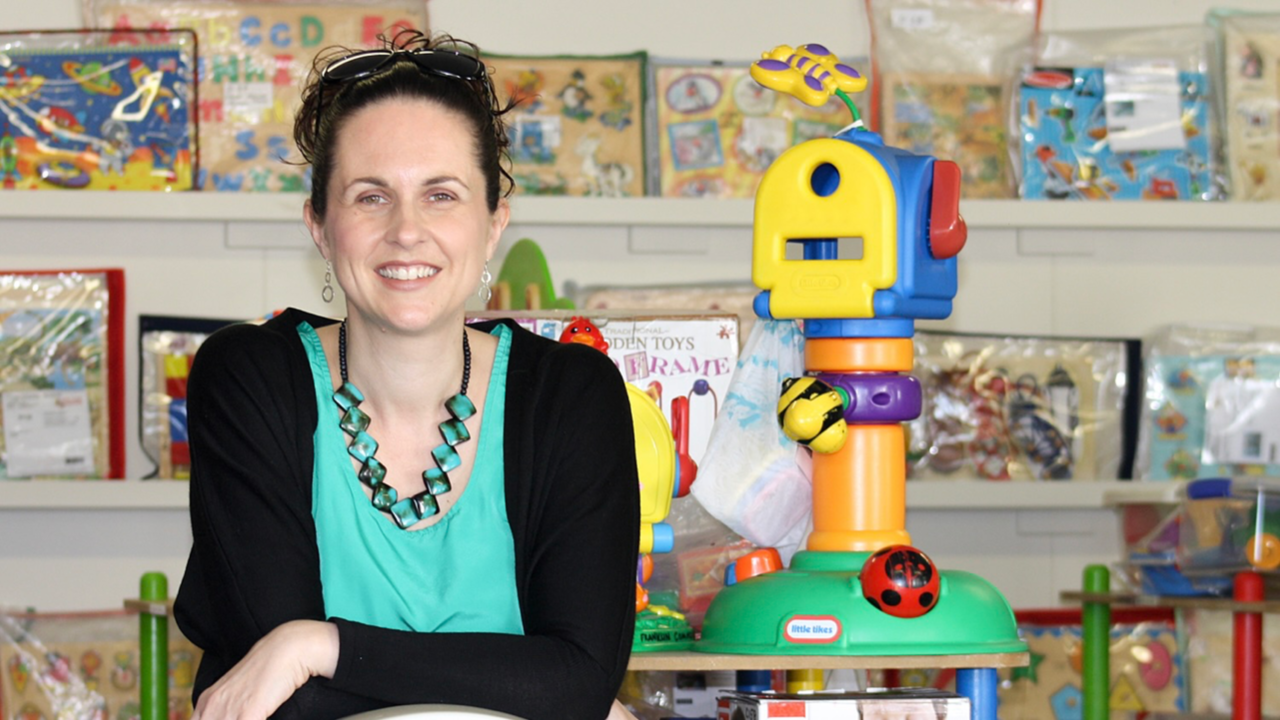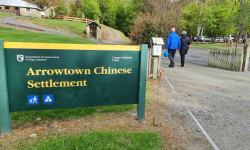
Franklin Community Toy Library has been serving the Pukekohe, South Auckland, community for more than 20 years. Toy Librarian Amanda Bailey shares how this neighbourhood initiative provides plenty of opportunities for listening—to people and to God.
Like most toy libraries, the one tucked behind Franklin Baptist Church in their former prayer room has a simple operational structure. Families have a choice of being ‘active’ or ‘non-active’ members. The former is cheaper and entails helping out in the library for one session each term. All member families benefit from the wide assortment of toys suitable for children from birth to early primary age. In the case of Franklin Community Toy Library (FCTL), that’s around 900 toys, all documented in a database down to individual parts.
Meeting needs
When the cost of membership could be the equivalent of one good quality toy alone, the advantages of belonging to a toy library become clear, especially when children don’t always take a fancy to what their parents think they will.
“Sometimes you buy a toy for a child that they really don’t like and then you are stuck with it,” says Amanda, who has been FTCL’s librarian since 2015.
“Here, if they don’t like it, you just swap it for a different one. Parents are often surprised what their child does like out of their selection of toys. It gives them the option of being able to pick things they would not normally have chosen at a toy shop or thought about before.”
Building relationships
FCTL has almost 90 members and 114 children on their books. Most of the members are community families. The toy library is an important way of connecting them with the church. One approach is through encouraging people to attend church events like the annual Pumpkin Partyor Flourish women’s events. The other, more effective, way is through building relationships.
“It’s a bit like being a hairdresser,” says Amanda. “People tell you things and then you pick up from where you left off two weeks ago. Sometimes I forget what people have had going on because there are so many people that come through. You just say, ‘How has your week been?’ and that usually starts it off. When people go through hard things, they share and I can pray for them.
“If someone has had a real hard week and they come in here crying, just giving a hug or a cup of tea, and getting them to sit down and having a chat is really good. The other members that help me are a really good support as well. It’s not just about me.”
Two years on, Amanda says she now has enough of a relationship with several of the regulars that she has been able to invite them to church services.
“Just listening to what God is saying, and timing, is important. There are lots of people that come to the toy library, but God will give me a bit of a heart for one or two that I feel he really wants me to pursue more than just the connection at the library. So, I will give them a ring, or we’ll have a coffee, or try and do something outside of that time, to really cement that relationship. Then I am able to speak from the position of a friend who loves Jesus and wants to see Jesus in their lives.”
God’s perfect timing
Sometimes that prompting from God takes a fair amount of courage to follow through on. Amanda recounts one such case.*
“There was a particular lady that came in over a series of months. She was clear she was an atheist, even though she had had a Christian background. I knew God was stirring my heart for her, to build a relationship with her. One night she was on duty with me as an active member and knew God wanted me to give her this verse.
“She had brought her daughter along that night. I thought, ‘Oh man, I’m probably not going to get the right chance.’ Her husband came to pick her up. My heart was beating but I knew, no, I need to share this word with her. I blurted out, ‘I just need to share something with you God’s been speaking to me about.’ And she was like, ‘Oh yeah, what’s that?’ I had a Word for Today and in it was a picture that looked so much like her. So, every time I opened my Word for Today, God was prompting me to pray for her. On that picture were the steps on how to become a Christian.
“I asked, ‘Does this picture look like you?’ She replied, ‘Oh yeah, it kind of looks like me.’ I said, ‘I believe God wants you to have this book in a minute, but I have this verse for you.’ Now this lady is dyslexic so she asked me to read it out. It was in Deuteronomy 30:19 about choosing life or death, blessing or cursing—making a choice for life, pretty much. She asked me to read it again. Then she said, ‘I can’t believe that. Two weeks ago I tried to commit suicide. And you’re telling me that God’s wanting me to choose life?’ I said, ‘Yeah. God has told me this is for you.’
“She was really touched. I got to pray for her as well. That was kind of the turning point for her. She decided to do Alpha and is getting baptised soon.
“That’s what I pray for more of—those times when God is showing me. He doesn’t show me for everybody, but those times where God’s timing is perfect. That was the right time to share that, and imagine if I hadn’t... Sometimes we need to get over ourselves and just do it!”
Story: Amanda Bailey, with Linda Grigg
Amanda is a former school teacher, Christian camp holiday programmes organiser, and YWAM-er. She and husband Daniel have four children. The family attends Franklin Baptist Church.
* The woman mentioned in Amanda’s story gave Amanda permission to share her testimony. We have chosen not to publish her name.
Read more about Franklin Community Toy Library.
Ruby Duncan, National Team Leader for Neighbourhood & Justice Initiatives, adds her perspective...
Listening to our neighbours
Neighbourhoods are changing their shape, and never has it been more important for us to be moving beyond our assumptions of who lives next door and what they might need and want. As neighbourhoods become more diverse, and as families change the traditional shape of working father and stay-at-home mother, and as ‘work’ becomes flexible or non-existent, we must take more time to pay attention to who is my neighbour and what do they want and need. We must be listening.
For as long as there have been gospel communities living within neighbourhoods, we have asked ourselves how we can best respond to the needs of our local community, as Christ would have us do. So often we have run ahead and assumed what our neighbours needed. Often we did this based on our perception of what their deficits and problems were, and not on what they would most want us to do and be.
We have a greater understanding these days that God has a desire for everyone to live in a place where they feel connected, supported and understood. A place where each person and group can flourish and become all they were created to be.
The beginning point for this to happen must be our capacity to listen to our neighbours, to understand who they are and their deepest longings and daily struggles. For this we must be great listeners. Activities that bring us into contact with our neighbourhood in fun and natural ways (rather than activities based on people’s problems) are a great way to create a context for this listening. When people are relaxed and there is an environment being built of trust and honesty, then we will truly hear what people have to say.
Toy library and other models
For many years models like the toy library have been a great way of doing this listening. I love this story, which highlights how this has happened at Franklin. These days, churches are experimenting with new ways of doing this. One of the activities I’ve been excited about is the veggie hubs. Just like the toy library they are based on creating a place where people come for something that is an everyday need, and find a place where they can also hang out, maybe have a coffee with others and make new friends, and where churches can be listening and finding out more about their neighbours.
The people hanging around at home during the day are no longer just mothers and the elderly. We have stay-at-home dads, people working flexible hours, more unemployed youth, and young parents.
What I also love about these models is that they create places where our neighbours can also be volunteers. Everyone loves to be helpful, and those outside our churches may have the most time on their hands! Instead of wringing volunteer hours out of our attendees, our neighbours may love to get involved themselves in making things happen. In this context, as we work side by side, we can really get to know each other. Listening goes to another level.
Scripture: Unless otherwise specified, Scripture quotations are from New Revised Standard Version Bible, copyright © 1989 National Council of the Churches of Christ in the United States of America. Used by permission. All rights reserved.


